Cheng-Yu Tsai
Unsupervised Iterative Deep Learning of Speech Features and Acoustic Tokens with Applications to Spoken Term Detection
Jul 17, 2017
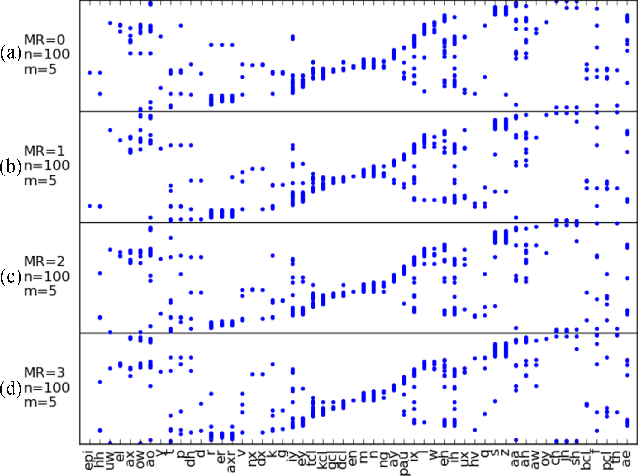
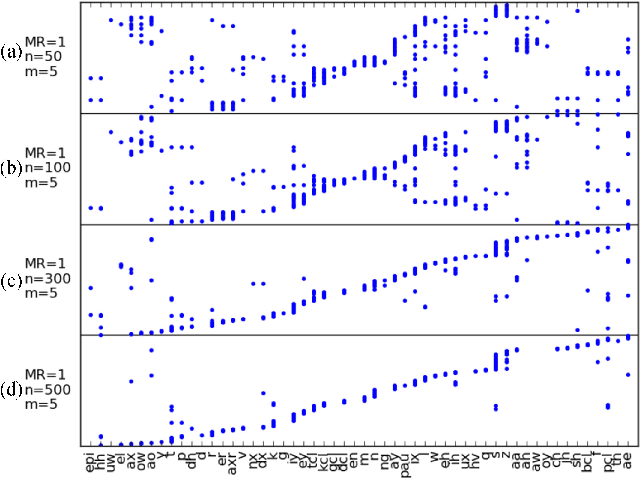
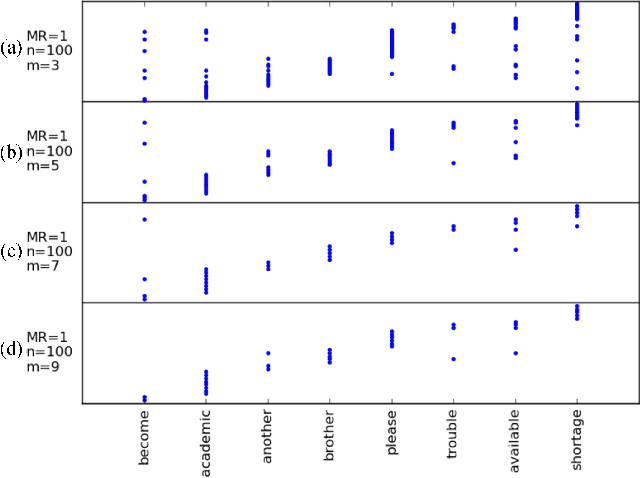
Abstract:In this paper we aim to automatically discover high quality frame-level speech features and acoustic tokens directly from unlabeled speech data. A Multi-granular Acoustic Tokenizer (MAT) was proposed for automatic discovery of multiple sets of acoustic tokens from the given corpus. Each acoustic token set is specified by a set of hyperparameters describing the model configuration. These different sets of acoustic tokens carry different characteristics for the given corpus and the language behind, thus can be mutually reinforced. The multiple sets of token labels are then used as the targets of a Multi-target Deep Neural Network (MDNN) trained on frame-level acoustic features. Bottleneck features extracted from the MDNN are then used as the feedback input to the MAT and the MDNN itself in the next iteration. The multi-granular acoustic token sets and the frame-level speech features can be iteratively optimized in the iterative deep learning framework. We call this framework the Multi-granular Acoustic Tokenizing Deep Neural Network (MATDNN). The results were evaluated using the metrics and corpora defined in the Zero Resource Speech Challenge organized at Interspeech 2015, and improved performance was obtained with a set of experiments of query-by-example spoken term detection on the same corpora. Visualization for the discovered tokens against the English phonemes was also shown.
An Iterative Deep Learning Framework for Unsupervised Discovery of Speech Features and Linguistic Units with Applications on Spoken Term Detection
Feb 01, 2016
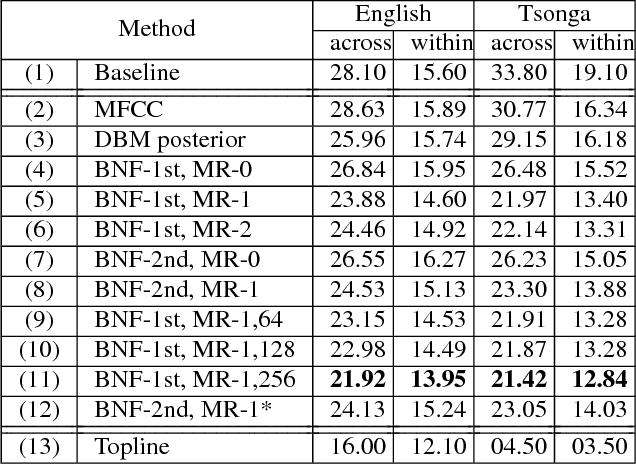
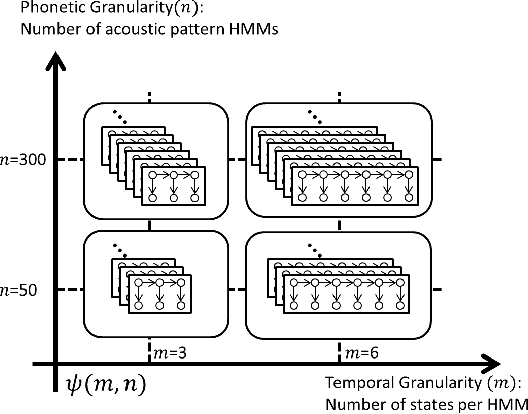

Abstract:In this work we aim to discover high quality speech features and linguistic units directly from unlabeled speech data in a zero resource scenario. The results are evaluated using the metrics and corpora proposed in the Zero Resource Speech Challenge organized at Interspeech 2015. A Multi-layered Acoustic Tokenizer (MAT) was proposed for automatic discovery of multiple sets of acoustic tokens from the given corpus. Each acoustic token set is specified by a set of hyperparameters that describe the model configuration. These sets of acoustic tokens carry different characteristics fof the given corpus and the language behind, thus can be mutually reinforced. The multiple sets of token labels are then used as the targets of a Multi-target Deep Neural Network (MDNN) trained on low-level acoustic features. Bottleneck features extracted from the MDNN are then used as the feedback input to the MAT and the MDNN itself in the next iteration. We call this iterative deep learning framework the Multi-layered Acoustic Tokenizing Deep Neural Network (MAT-DNN), which generates both high quality speech features for the Track 1 of the Challenge and acoustic tokens for the Track 2 of the Challenge. In addition, we performed extra experiments on the same corpora on the application of query-by-example spoken term detection. The experimental results showed the iterative deep learning framework of MAT-DNN improved the detection performance due to better underlying speech features and acoustic tokens.
A Multi-layered Acoustic Tokenizing Deep Neural Network (MAT-DNN) for Unsupervised Discovery of Linguistic Units and Generation of High Quality Features
Jun 07, 2015
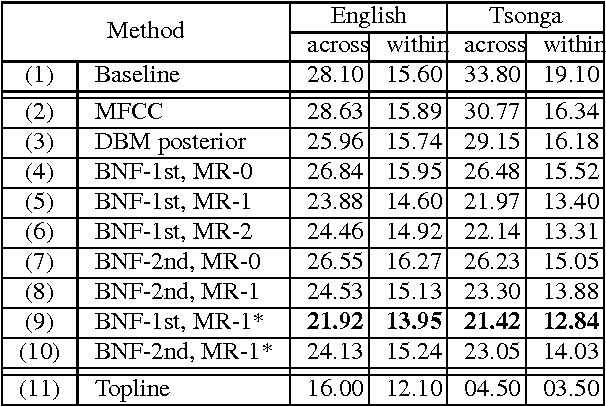
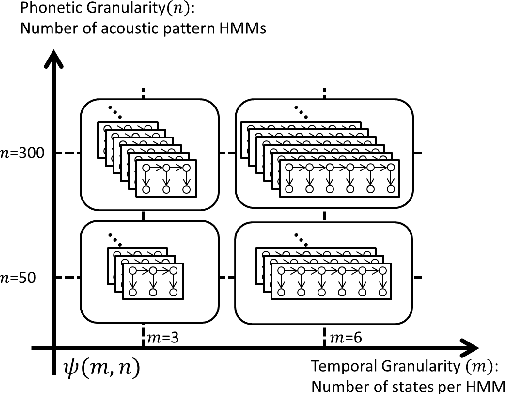

Abstract:This paper summarizes the work done by the authors for the Zero Resource Speech Challenge organized in the technical program of Interspeech 2015. The goal of the challenge is to discover linguistic units directly from unlabeled speech data. The Multi-layered Acoustic Tokenizer (MAT) proposed in this work automatically discovers multiple sets of acoustic tokens from the given corpus. Each acoustic token set is specified by a set of hyperparameters that describe the model configuration. These sets of acoustic tokens carry different characteristics of the given corpus and the language behind thus can be mutually reinforced. The multiple sets of token labels are then used as the targets of a Multi-target DNN (MDNN) trained on low-level acoustic features. Bottleneck features extracted from the MDNN are used as feedback for the MAT and the MDNN itself. We call this iterative system the Multi-layered Acoustic Tokenizing Deep Neural Network (MAT-DNN) which generates high quality features for track 1 of the challenge and acoustic tokens for track 2 of the challenge.
 Add to Chrome
Add to Chrome Add to Firefox
Add to Firefox Add to Edge
Add to Edge